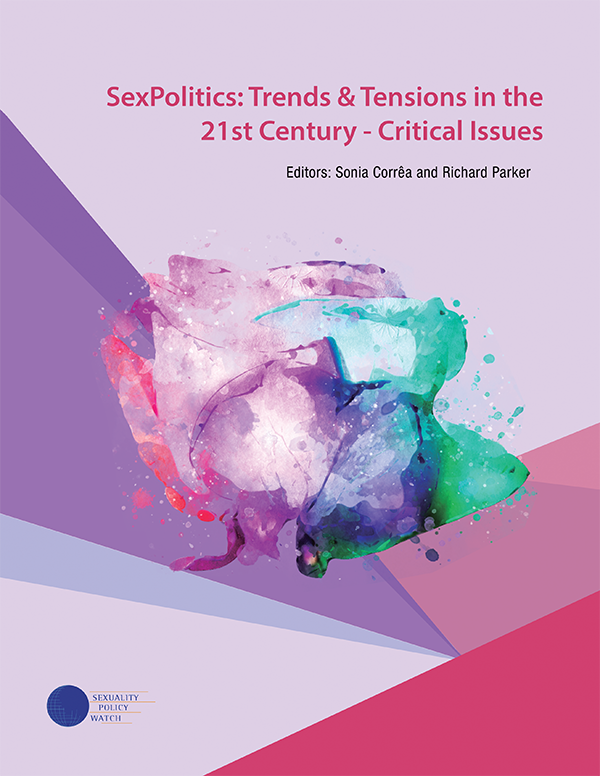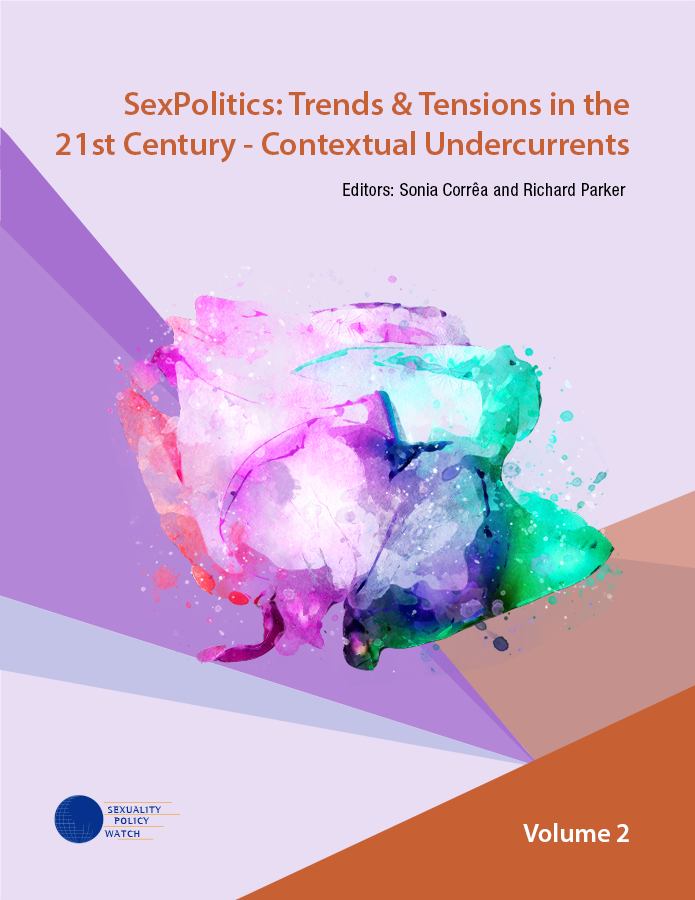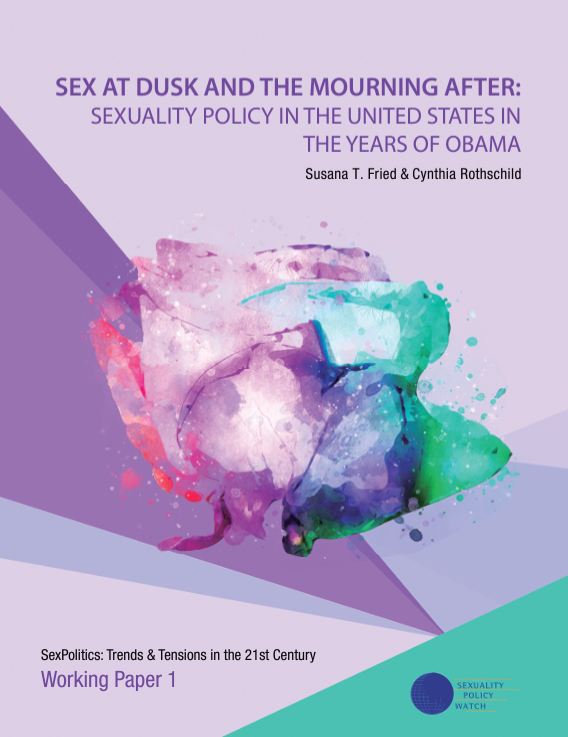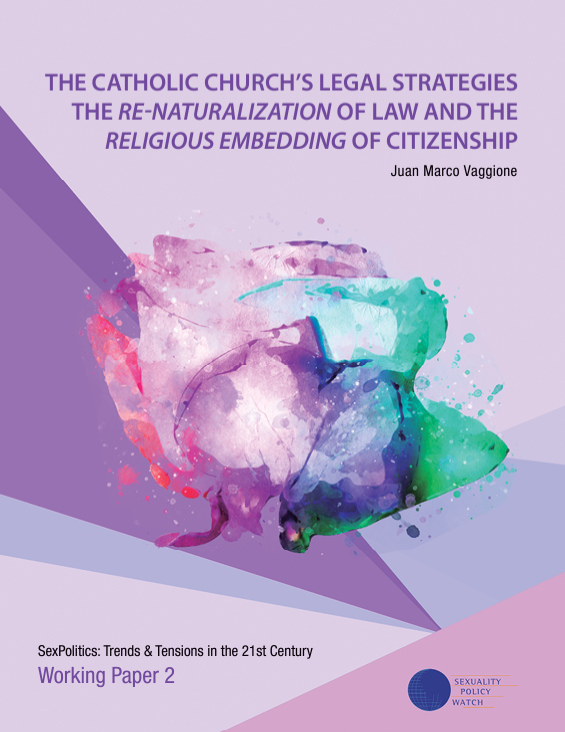
Presentation
Sexuality Policy Watch (SPW) launches the fourth publication of its most recent cycle of transnational analyses on sexual politics that started in 2015.
The first Working Paper titled Sex at dusk and the mourning after: sexuality policy in the United States in the years of Obama, authored by Susana T. Fried and Cynthia Rothschild was published in May, 2018. The in September, SexPolitics: Trends & Tensions in the 21st Century – Critical Issues, a first edited volume comprising four articles that examine the intersections of sexuality, gender and rights through a variety of angles. In October, a second Working Paper, titled The Catholic Church’s Legal strategies – The Re-naturalization of Law and the Religious Embedding of Citizenship, authored by Juan Marco Vaggione was also published.
The fourth publication is the second edited volume of the collection: SexPolitics: Trends and Tensions in the 21st Century – Contextual Undercurrents. It comprises seven chapters chartering main trends and debates at work in sexual politics in Africa, the Anglo Caribbean Region, Europe, Latin America, Post-Soviet Countries but also China and India, respectively written by Varyanne Sika and Awino Okech, Christine Barrow, David Paternotte, Gloria Careaga, Mario Pecheny, Yana Kirey-Sitnikova and Anna Kirey, Huang Yingying, and Vivek Divan. The standpoints and analytical frames used in each chapter are quite distinctive. Therefore, what emerges from the exercise as a whole is a rich and remarkably insightful mosaic panel of sexual politics worldwide.
We dearly thank all authors for so generously making this excellent outcome possible.
Good reading,
Sonia Corrêa and Richard Parker
The SPW exercise titled SexPolitics: Trends & Tensions in the 21st Century charted the ways in which past trends in sexual politics interweave with present undercurrents, avoiding linear interpretative pathways that suggest that we left behind a luminous time of progress and are moving towards an epoch of shadows. Its results are translated in the collection now being launched that comprises two edited volumes and four working papers. Its wealth flagrantly reflects the intellectual and epistemological plurality of gender and sexuality research and thinking in the global south.
Book 1

SEXPOLITICS: TRENDS & TENSIONS IN THE 21ST CENTURY - CRITICAL ISSUES
One main theme running through this book is the evolving conceptualization and application of sexual rights as derived from the definition adopted at the IV World Conference on Women (Beijing, 1995): the right to a safe and full sex life, as well as the right to take free, informed, voluntary and responsible decisions on their sexuality, sexual orientation and gender identity, without coercion, discrimination or violence.
When read together, these reflections chart the scattered pieces of the complicated puzzle that emerged from the circulation, interpretation, application, but also contestation of the articulation of rights and sexuality that we have witnessed in recent decades. They also openly address the political obstacles and regressions at play in the environments in which sexual rights discourses and legal developments are evolving. Furthermore, albeit in distinctive ways, all four exercises critically examine the geopolitical imbalances, complexities and traps of sexual politics today.
Book 2

SEXPOLITICS: TRENDS & TENSIONS IN THE 21ST CENTURY – CONTEXTUAL UNDERCURRENTS
SexPolitics: Trends and Tensions in the 21st Century – Contextual Undercurrents, includes seven chapters organized in two parts. The first part charts sexual politics in five regional spaces: Africa, the Anglo Caribbean Region, Europe, Latin America and Post-Soviet Countries. In the second part, the undercurrents of sexual politics underway in two large Asian countries, China and India, are also examined. This uneven composition reflects, on one hand, the contours of SPW’s transnational partnerships and, on the other, it illustrates the challenges of spatialized analyses of sexual politics. The standpoints and analytical frames used in each chapter are quite distinctive. Therefore, what emerges from the exercise as a whole is a rich and remarkably insightful mosaic panel of sexual politics worldwide.
TO DOWNLOAD EACH CHAPTER
Working Papers


WORKING PAPER 1
Sex at dusk and the mourning after: sexuality policy in the United States in the years of Obama, By Susana T. Fried and Cynthia Rothschild.
WORKING PAPER 2
The Catholic Church’s legal strategies – The re-naturalization of law and the religious embedding of citizenship, by Juan Marco Vaggione.
Related Content



